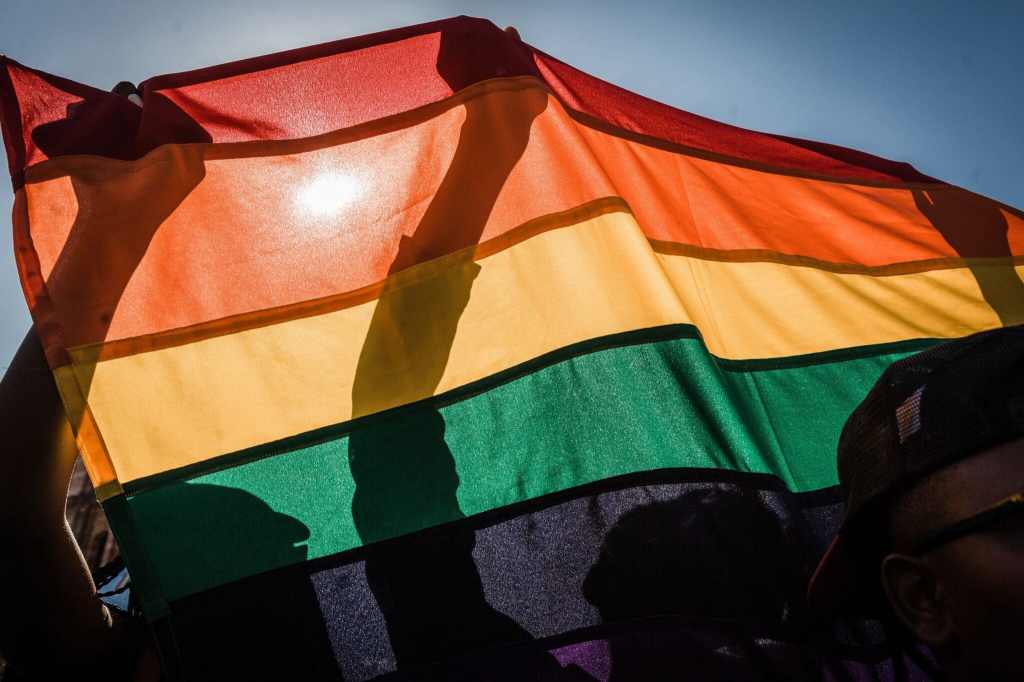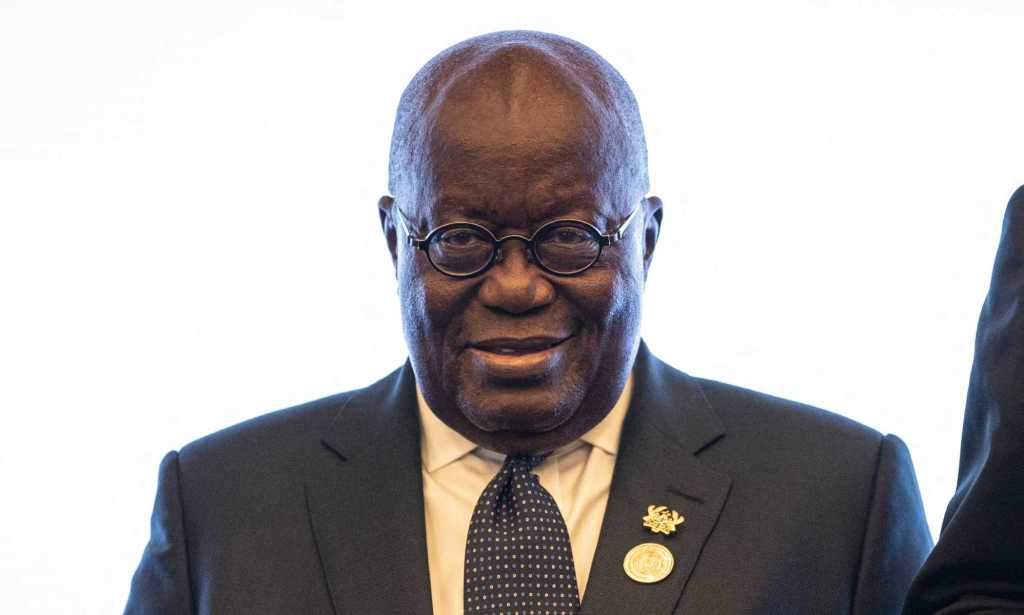Ghana: ‘Scared’ LGBTQ+ people forced to choose between staying or fleeing, activist says

Ghana’s proposed law would impose a prison sentence of up to three years for anyone simply identifying as LGBTQ+. (Getty)
Ghana's proposed law would impose a prison sentence of up to three years for anyone simply identifying as LGBTQ+. (Getty)
As the fate of Ghana’s draconian anti-LGBTQ+ bill hangs in the balance pending a court ruling, an activist is helping “scared” queer people confront a terrible choice: face persecution at home or try to find safety elsewhere.
In February, Ghana’s parliament passed the bill to increase existing criminal penalties for queer people living in the country. Although not yet law, it seeks to impose prison sentences for those identifying as part of the queer community as well as those who “support” LGBTQ+ activities.
Prominent activist groups have urged president Nana Akufo-Addo to refuse to sign it into law. A memo from Ghana’s finance ministry warned that it would have disastrous economic consequences if it were to make its way on to the statute books.
LGBTQ+ Ghanaians already face high levels of discrimination and violence. The proposed legislation has some considering fleeing their homes to find safety abroad.
August – not their real name – told PinkNews it’s been a “very challenging time”. They’re known as a leader in the community and often get people who are “scared” asking them what resources are available to help.
“It’s very important for the community to know how to take care of ourselves in times of difficulty,” the activist said.
“We do not know who to trust. We are just like a ball floating on a very big water surface.
“We do not know where we go next. At the end of the day, we just wake up hoping that it doesn’t happen the way the wider society is expecting it to happen.”
Debates over the bill, which was first proposed in 2021, and LGBTQ+ rights have increased in recent months. So too, have the attacks on members of the queer community. There have been reports of people being threatened, beaten and subjected to extortion.

The current political climate has LGBTQ+ people feeling that they should seek asylum in safer countries, but most of them “don’t have the next step”, August said.
“They have this feeling that, ‘Well, should I get the opportunity and seek asylum [in] another country where it is accepted, then I’ll be safe’.
That might sound obvious but seeking asylum is far from easy for Ghanaians.
“The process you go through. Some community members don’t even have passports… it’s quite difficult to survive daily,” August revealed.
“They have no hope except for things to not go the way parliament is expecting.”

August has even had community members asking them if they’re considering fleeing the country. However, their love of their fellow countrymen and the community-led initiative they’ve established has kept them rooted in the West African country.
“Even though my family’s homophobic, that love for them still exists,” they said. “The fact I’ve established something here, I don’t want to leave it and go.
“I love the Ghanaian community, regardless of how homophobic [they are] or the fact they use [anti-LGBTQ+ talking points] in their speeches.
“Ghana is a very free country. The safety you get if you’re not tagged as or suspected to be LGBTQ+ – we even have certain communities, especially along the coastal areas, that seem to be more inclusive and welcoming towards LGBTQ+ persons, but we still have homophobes among those same people.”
Campaigners have described the bill as seeking to extinguish and erase LGBTQ+ people in Ghana. One activist feared the conditions of heightened vigilance and targeting of queer individuals could lead to a “witch hunt”.
On Ghana’s Independence Day, 6 March, crowds of LGBTQ+ advocates and allies gathered outside the Ghanaian high commission in London and elsewhere to demonstrate in solidarity with their queer siblings.
Political activist Phyll Opoku-Gyimah, who spoke at the event, condemned politicians in Ghana for “ostracising and marginalising” LGBTQ+ people.
August saw news of the London protests and knew about virtual protests held for Ghana’s LGBTQ+ community. They urged the international community to remain “there for us” as queer people face increased pressure in their day-to-day lives.
“LGBTQ+ people are everywhere, in our economic sectors, our business sector, our education sector. They’re in our sports sectors, our foreign ministries. We have LGBTQ+ people in every sector, but they will not come out.
“Fortunately, it’s not written on anyone’s forehead for you to see.

